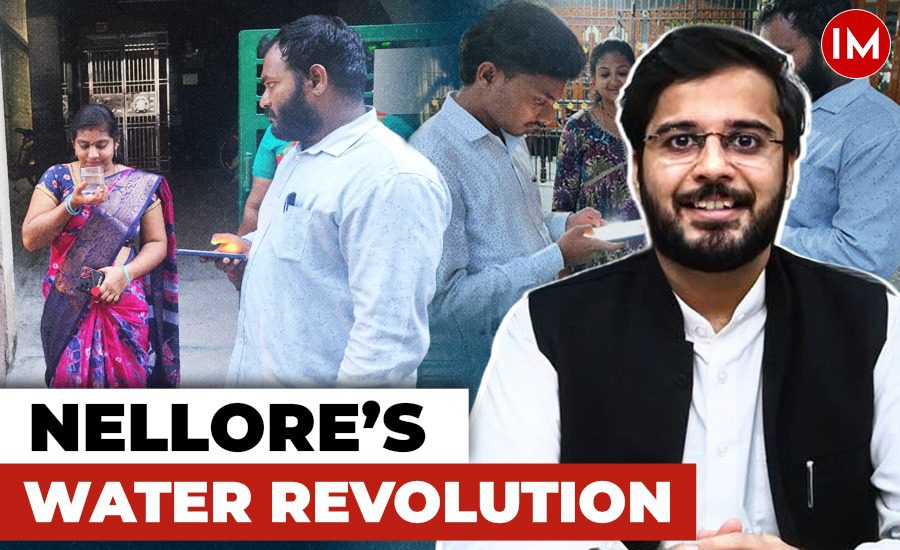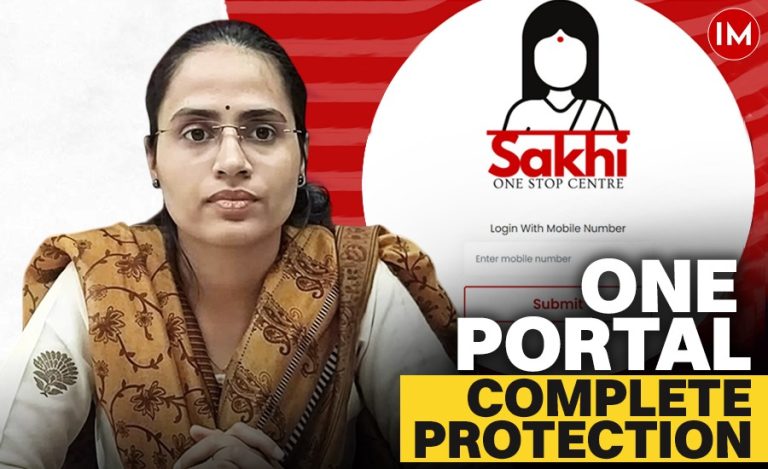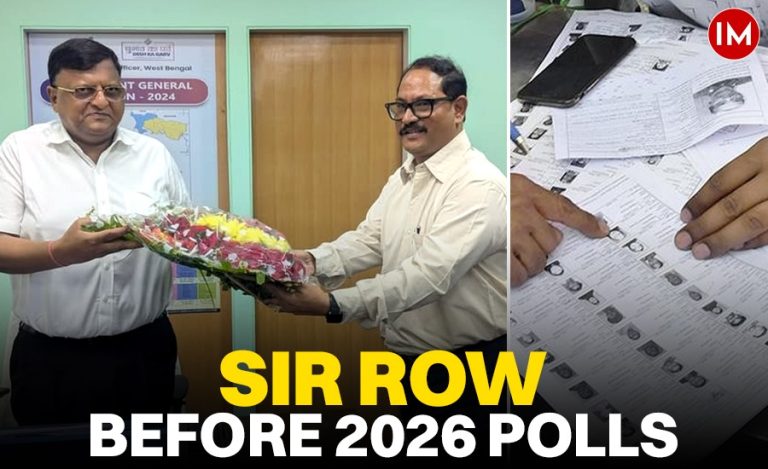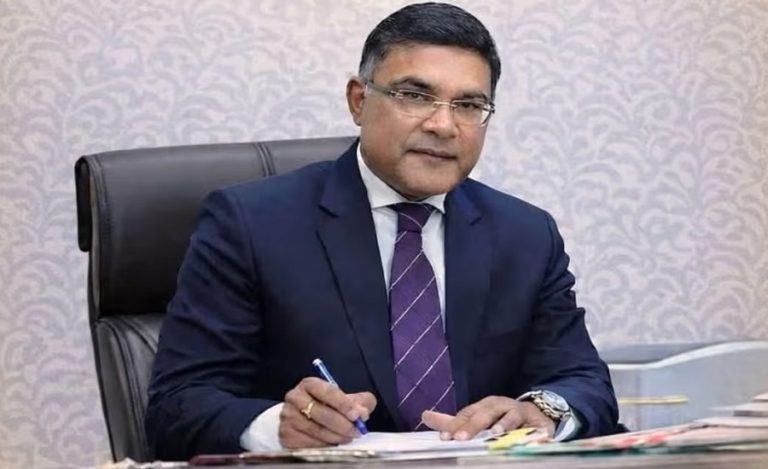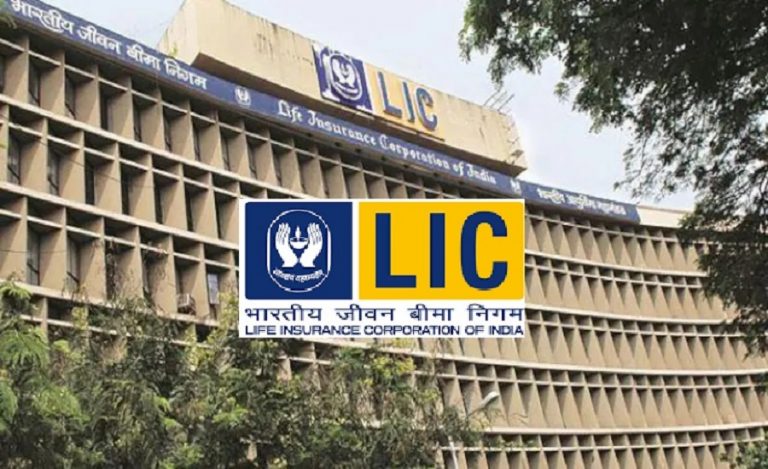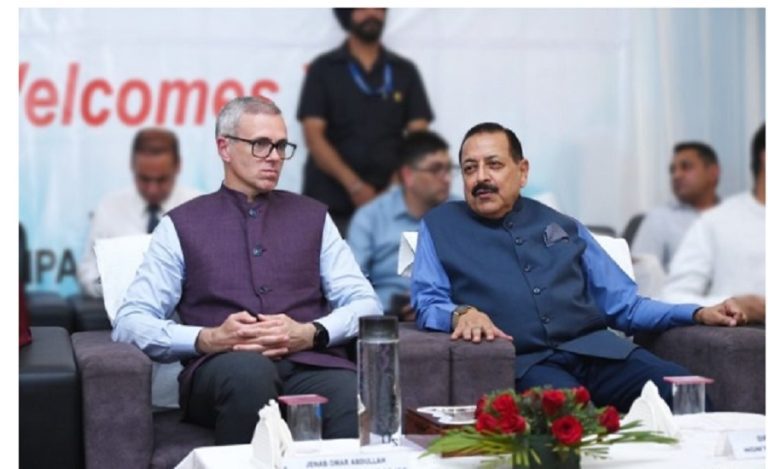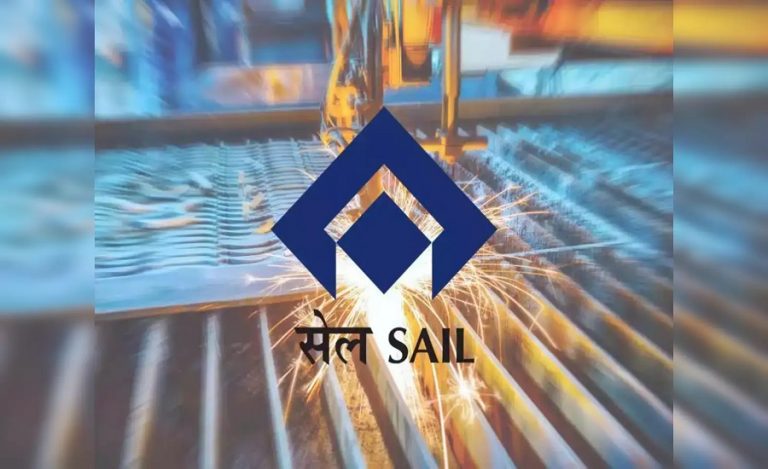In Nellore, Andhra Pradesh, a revolutionary initiative spearheaded by 2019 batch IAS officer Vikas Marmat at the Nellore Municipal Corporation sets a new precedent in urban water management. The “NMC Water Yojana” is a cutting-edge project to ensure that every household in Nellore receives sufficient and high-quality water. This ambitious endeavor is not only transforming how water is managed but also creating a model that could potentially be replicated across the state.
Speaking with Indian Masterminds, Mr. Marmat, the then Municipal Commissioner, Nellore, shared about the project in detail. He is currently posted as Project Director for Kuppam area development authority.
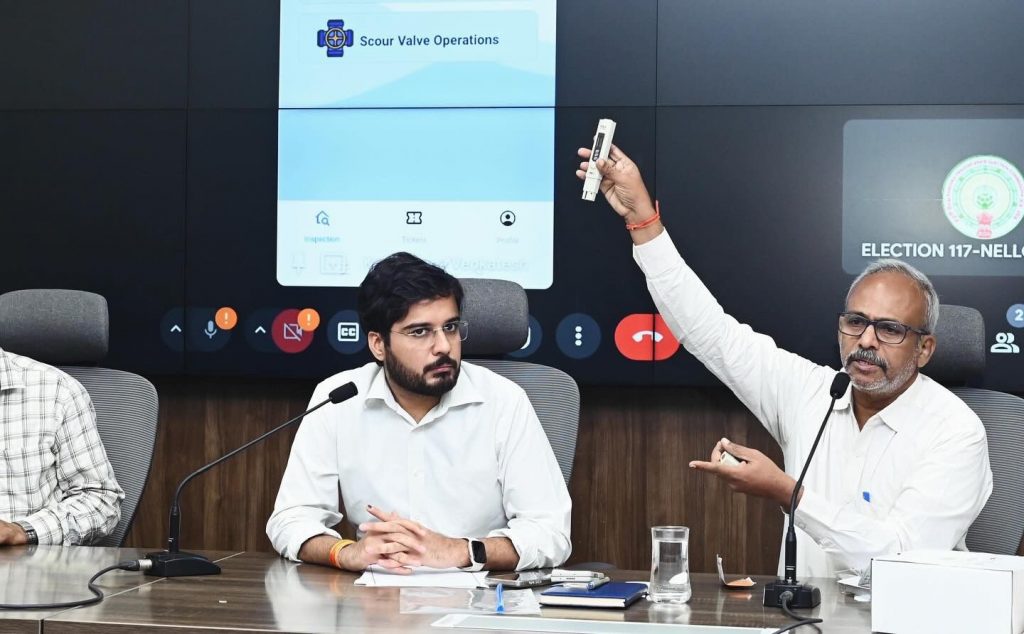
A VISION FOR COMPREHENSIVE WATER MANAGEMENT
Nellore, the fourth largest city in Andhra Pradesh after Visakhapatnam, Vijayawada, and Guntur, faces unique challenges in water management. Previously, no system in place allowed for the meticulous monitoring of water quality and quantity at the household level.
The core mission of the NMC Water Yojana is straightforward yet profound: to guarantee that every household in Nellore has access to clean and adequate water. To achieve this, the initiative has introduced an innovative application designed with a suite of advanced features:
1. Geo-Coordinate Capture: One of the application’s standout features is its ability to capture and track the geo-coordinates of every household. This ensures that interventions are monitored continuously and data is collected accurately, allowing for precise management of water distribution.
2. Inspection Cycle: Local engineering secretaries are assigned the task of inspecting every household within their jurisdiction every 25-30 days. This regular inspection is crucial for maintaining water quality and addressing issues promptly.
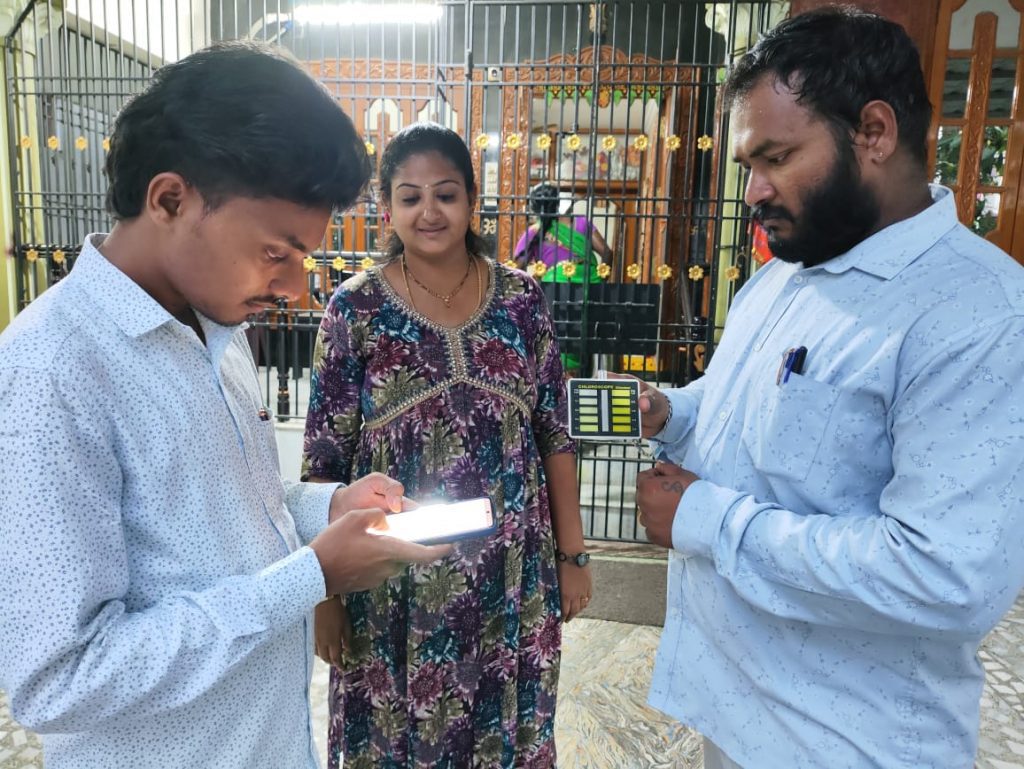
3. City Mapping: The application facilitates the creation of a comprehensive map of the city. This map will highlight areas experiencing water quality issues, quantity deficiencies, or other problems. Based on this data, targeted action plans will be developed to address specific needs.
“To support the inspection process, each secretary is equipped with personal kits for testing water quality. These kits include pH and Total Dissolved Solids (TDS) meters, which are used to assess the water’s pH level and TDS levels, ensuring they fall within acceptable ranges,” the officer shared.
BUILDING TECHNOLOGY AND PHYSICAL INSPECTIONS
While the technology behind the NMC Water Yojana is impressive, the real challenge lies in effectively integrating it with physical inspections. The application alone is not enough; its success depends on rigorous on-ground execution. To ensure this, the initiative incorporates several key measures:
1. Cross-inspections: Higher officers, including Mr. Marmat himself, conduct cross-inspections to verify that the engineering secretaries are performing their duties as required. This layer of oversight is essential for maintaining the accuracy and integrity of the inspection process.
2. CCTV Surveillance: To further enhance monitoring, CCTV cameras have been installed throughout the city. These cameras help randomly track the movement of secretaries, ensuring adherence to inspection schedules and preventing any lapses in duty.
“The real challenge is not just developing an app but ensuring its effective use in conjunction with on-ground inspections,” Mr. Marmat added.
A significant aspect of the NMC Water Yojana is its approach to managing legal and illegal water connections. Nellore, like many other cities, has households with both types of connections. Legal connections are provided through official pipelines, while illegal connections may come from canals or borewells.
The initiative aims to identify and rectify illegal connections, ensuring that all households receive water through authorized means. For those without tap connections, water is supplied via tankers, and households pay for this service. The system also includes a comprehensive survey process to identify and address these issues.
THE SECRETARIAT SYSTEM
The NMC Water Yojana is supported by a well-structured secretariat system, which plays a crucial role in managing public amenities and services. In Andhra Pradesh, secretariats have been established for urban areas with populations exceeding 4,000 and rural areas with populations exceeding 2,000. Nellore, with a population of approximately 1.8 lakh, benefits from this structured approach.
Amenity Secretaries are responsible for overseeing various amenities, including water supply, drainage, and public parks. They ensure that these services are maintained efficiently and effectively.
Sanitation Secretaries manage sanitation and waste disposal, ensuring that garbage collection and waste management services are functioning optimally.
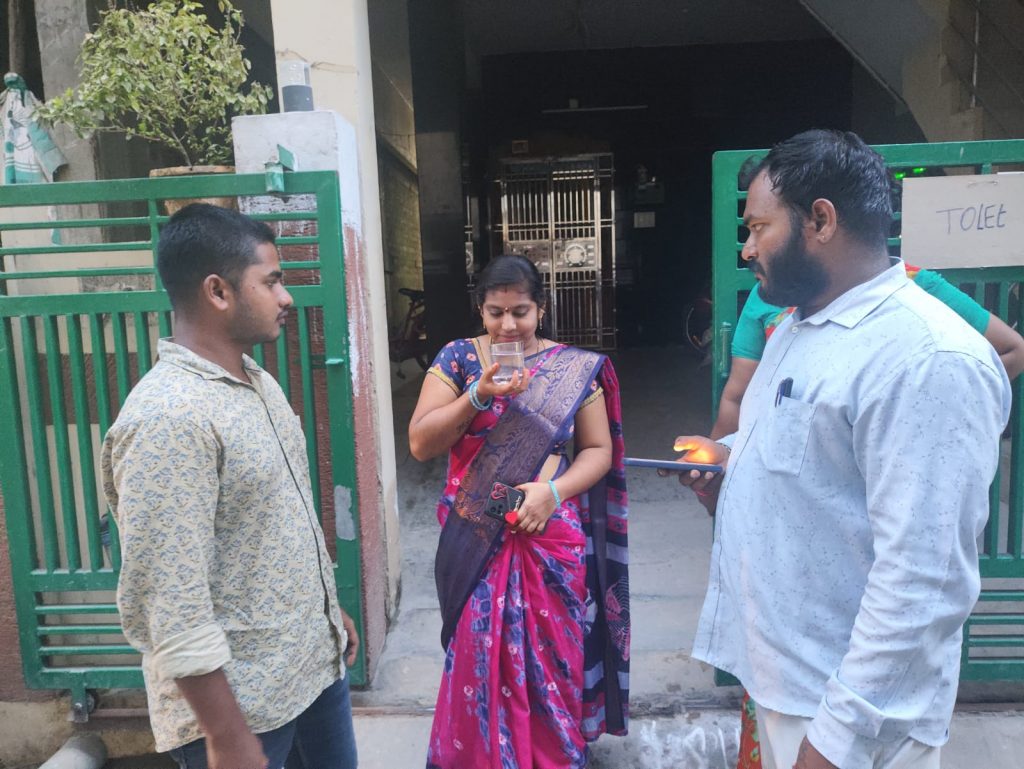
“These secretaries conduct household inspections, enter data into the app, and use pH and TDS kits to assess water quality. Each secretary manages around 1,200 households, making the inspection process a significant but manageable task,” Mr. Marmat shared with Indian Masterminds.
PROGRESS AND FUTURE ASPECTS
The NMC Water Yojana has made notable progress since its launch. After one month of surveying, substantial data has been collected, which is being used to create a detailed city-wide map. This map will highlight areas requiring attention and guide future actions.
If the initiative proves successful, there are plans to extend this model across Andhra Pradesh. The comprehensive approach—combining technology with physical inspections—could serve as a blueprint for addressing water management challenges in other cities and states.
The NMC Water Yojana represents a significant leap forward in urban water management. Under the leadership of IAS officer Vikas Marmat, Nellore is setting a new standard with its innovative use of technology and physical inspections to ensure that every household has access to quality water.

